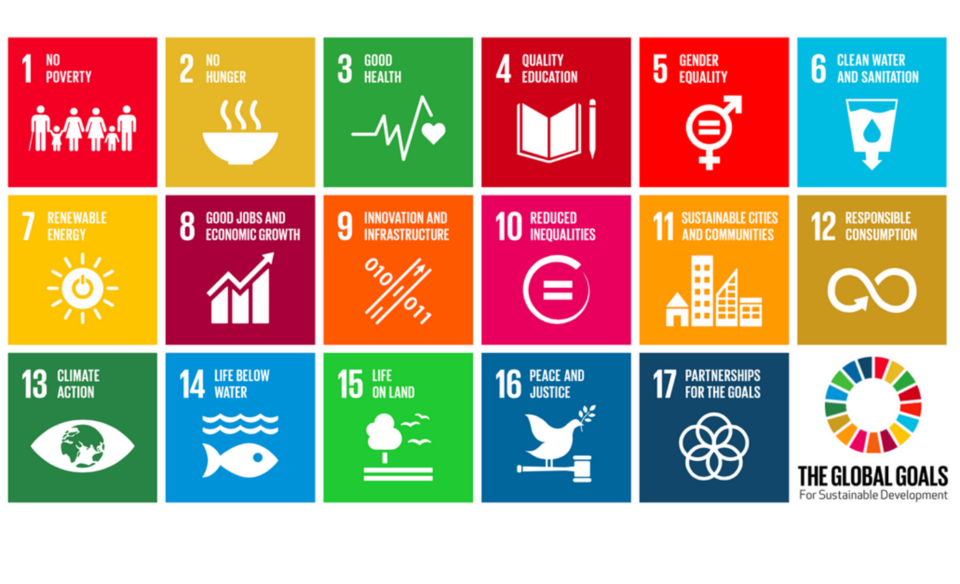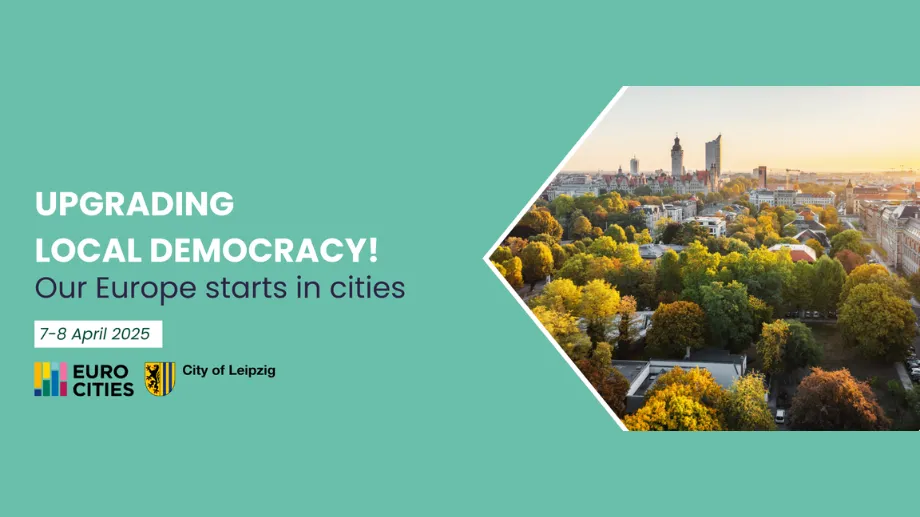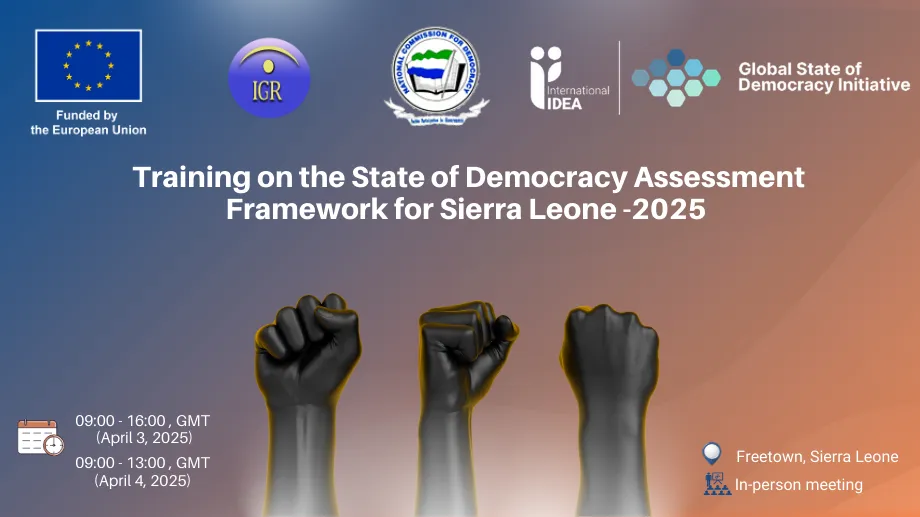Are we on track with the Implementation of the 2030 Agenda for Sustainable Development?

The effective implementation of Agenda 2030 for Sustainable Development will depend on the ownership of the process at all levels of government, a multi-stakeholder approach, and the capacity to harmonize ambitions with realities.
The Office of International IDEA to the European Union, in collaboration with the Australian Mission to the European Union, organised an experts roundtable with title, “Implementation of the 2030 Agenda for Sustainable Development: Are we on track?”, in Brussels on 22 November 2016. Among other salient issues, participants discussed the obstacles and challenges to achieving the Sustainable Development Goals (SDGs), margins for countries to ensure inclusive implementation, assurances of review and monitoring frameworks, and mutual challenges that countries and regions face in this endeavor.
The meeting was moderated by Andrew Bradley, Director of the Office of International IDEA to the EU. Helen Stylianou, Deputy Head of Mission, Australian Embassy to Belgium and Luxembourg and Mission to the EU and NATO made the opening remarks, and Jan Vandemoortele, independent researcher, and co-author of the Millennium Development Goals (MDGs) deliver the key note address, “How to bring the SDGs out of their current slumber?”. Speakers at the event, included Ajay Kumar Bramdeo, Ambassador of the African Union to the EU and ACP Group of States, Ciara O’Brian, Chairperson of the European Council Working Party on Human Rights (COHOM), European External Action Service (EEAS), Mark van de Vreken, Deputy Director – Global Public Goods, Post-2015 Commission, Cabinet of Belgian Deputy Prime Minister, Alexander De Croo, Michael-John Ellis, Policy Officer, Unit 'Policy and Coherence', Directorate-General for International Cooperation and Development, European Commission, Andreas Versmann, Sustainable Development Observatory, European Economic and Social Committee (EESC), Deirdre de Burca, Member of the Steering Committee, SDG Watch Europe, and Barbara Pesce-Monteiro, Director of the UN/UNDP Brussels Representation Office.
Level of ambition at local, national and regional level
The Sustainable Development Goals are universal, and they call for action by all countries to promote prosperity and protect the planet. Throughout the negotiation process that led to the adoption of the 2030 Agenda, member states, non-state actors and international organizations, including regional organisations, underscored the importance of democratic governance for delivering on the SDGs framework, with its 17 Goals and 169 targets.
Governments, in close partnership with multilateral organizations, civil society organisations and citizens in general, as well as a wide range of actors, are expected to take ownership and establish frameworks for the achievement of the 17 Goals within the next 15 years. Countries have the primary responsibility for follow-up and review of the progress made in implementing the Goals. Regional follow-up and review will be based on national-level analyses and will contribute to monitor implementation at the global level.
Academic expert and author, Jan Vandemoortele, launched the debate with a critical analysis, stating that no substantial operational progress has yet been made. The global level of ambition is not necessarily the same as the one targeted at national level. Therefore, the advice to countries is to prioritise, adapt targets, and ensure participation at the regional level.
The question was asked whether elections automatically bring inclusive democracy, and what democracy has brought to Africa. As economic partnership agreements (concluded by the European Union with sub-regional entities) often conflict with the SDGs, there is a need to look differently at economic development in Africa.
As an example of what was happening at the country level, it was mentioned that the recent Belgian Development Cooperation policy incorporates the implementation of the 2030 Agenda, and includes a focus on sustainably economic growth and the participation of the private sector, as well as domestic resource mobilization. A multi-level political steering group has also prepared an inter-ministerial conference and a national strategy on the implementation of the SDGs.
European strategy to streamline action, mapping exercises and national ownership
Will the EU act as a champion of SDG implementation? The recent EU communications on the “Next steps for a sustainable European future”, the “New European Consensus on Development – Our World, our Dignity, our Future”, and the “Renewed Partnership with the countries of Africa, Caribbean and Pacific” set a shared vision and a framework for European action in support of the implementation of Agenda 2030. These strategies include all EU institutions and Member States, and provides ten EU priorities for effective implementation.
The question was raised whether EU Member States should set more ambitious and concrete indicators, and engage in a more participatory monitoring model. A selection and adaptation of targets at national level are inevitable, and increase the potential of national ownership of the SDGs. In its policy frameworks, the EU emphasizes a multi-stakeholder approach, including official authorities at all levels, civil society and the private sector.
Although the EU is quite advanced in preparing for the implementation of the SDGs, it is important to also take note of narratives in other parts of the world, which could be mutually reinforcing toward the attainment of the SDGs. Another challenge is how to match the ambitions and dynamics with reality on different continents. Participants urged the EU to, in its relationship with third parties, pursue Agenda 2030 implementation jointly, based on due prior consultation. Further, it was mentioned that a particular challenge for Africa would be to ensure an inclusive implementation at local, national and regional levels, especially in instances where there is an absence of any organised civil society.
Participants confirmed the need to strengthen security cooperation, considering the new global challenges, but cautioned to base strategies on fear and introspection. The engagement of young people should be a top priority and awareness campaigns and civic education can be effective to this end. Furthermore, participants were also positive about the involvement of local authorities for the successful implementation of the SDGs.
United Nations: Reputation at stake
For the United Nations (UN), the implementation of the Agenda 2030 is a key priority and much action has already been taken or has been planned. In this regard, already 50 countries worldwide have aligned their budgets to the SDGs in close dialogue with the UN, 36 countries will take part in the National Voluntary Review process, various reports of country implementation and UN support have been published, and a report has been issued synthesising the main lessons from the Millennium Development Goal Review conducted by the UN System Chief Executives Board for Coordination. These and other initiatives are taken by the UN to support countries in their implementation efforts. Furthermore, it was stated that the UN would monitor the implementation process closely, and work in partnership with all stakeholders. Participants concluded that it is best to adopt a positive narrative, look at solutions and best practices, and to create an enabling environment for global implementation.




